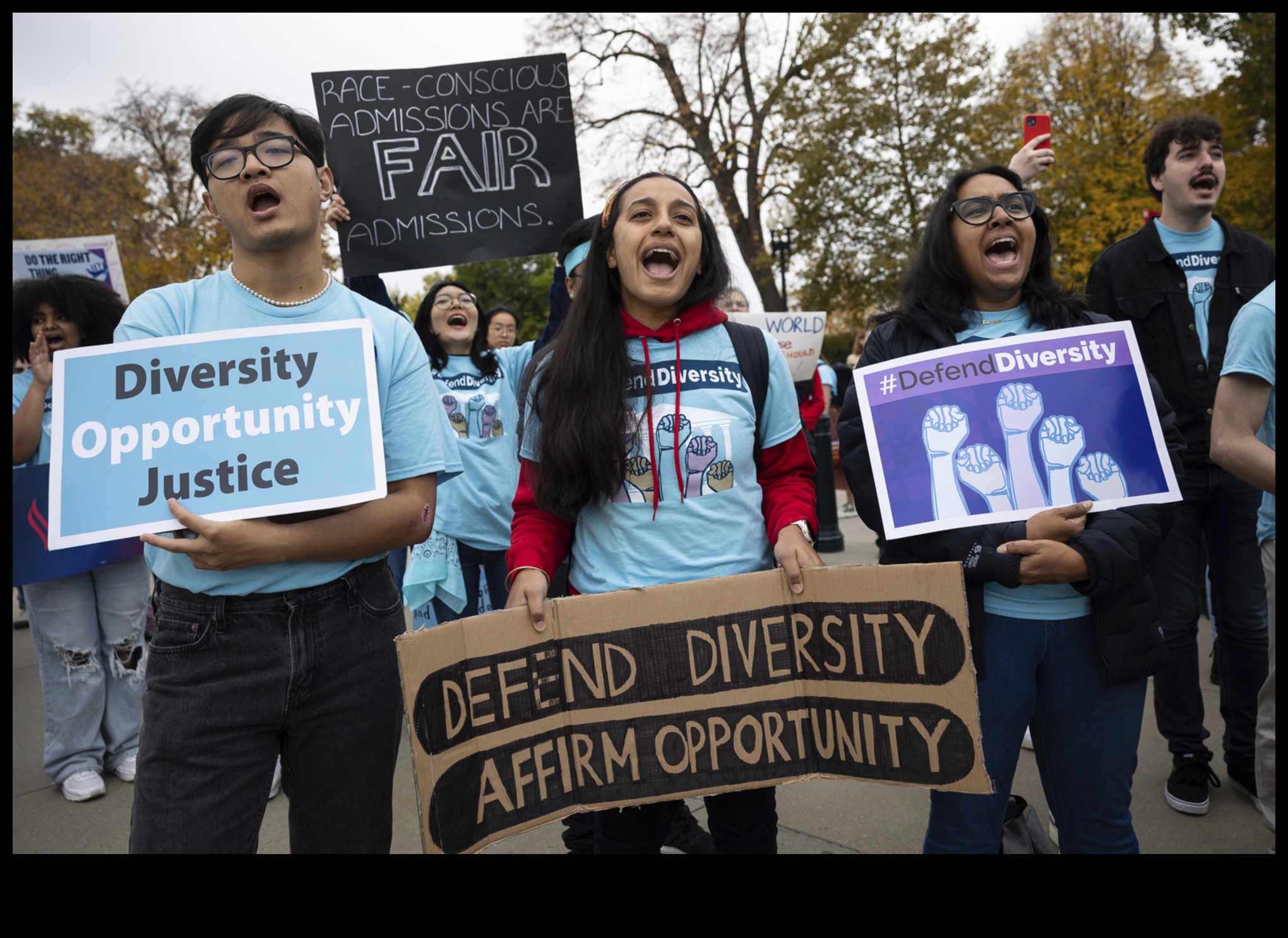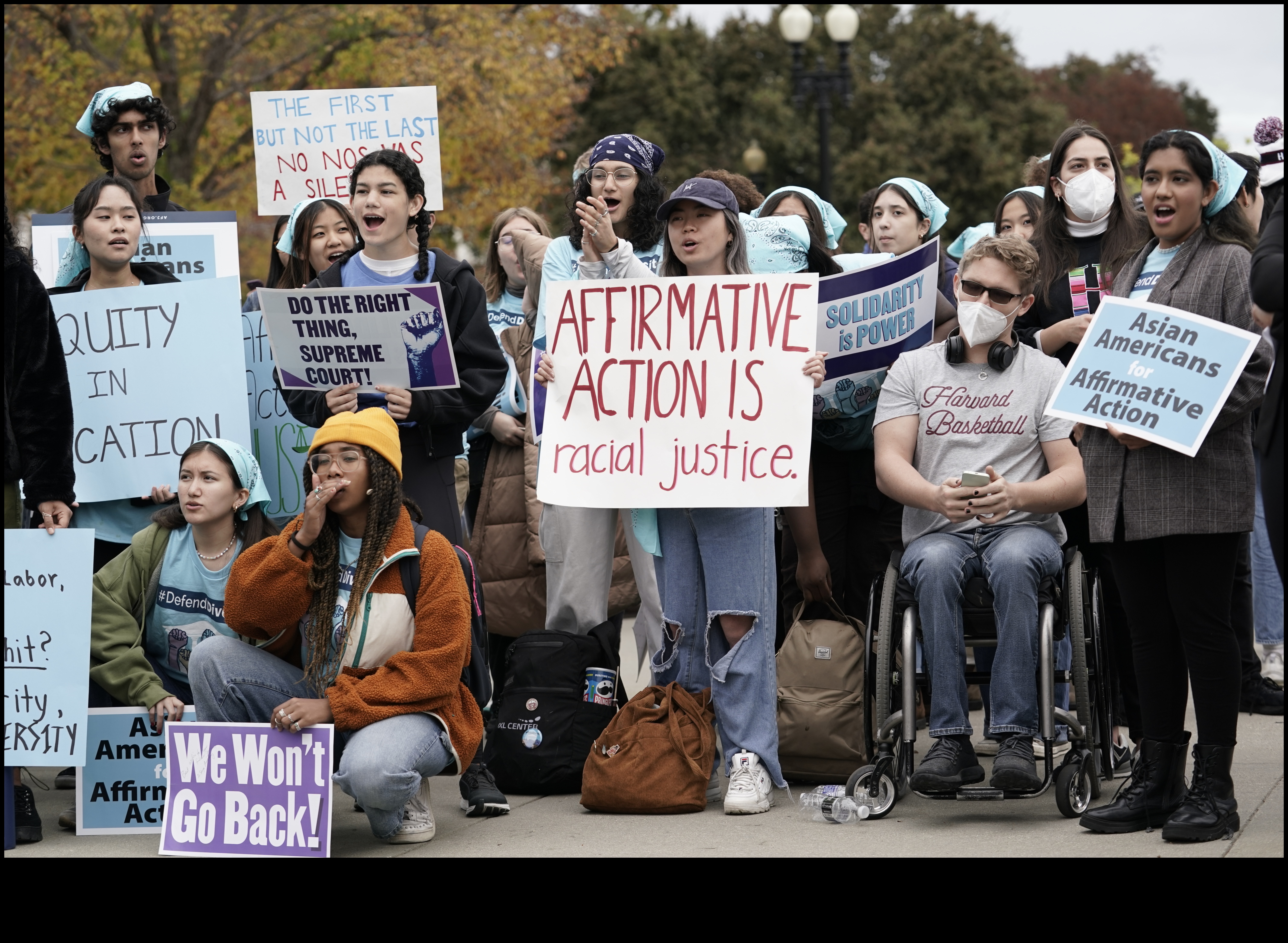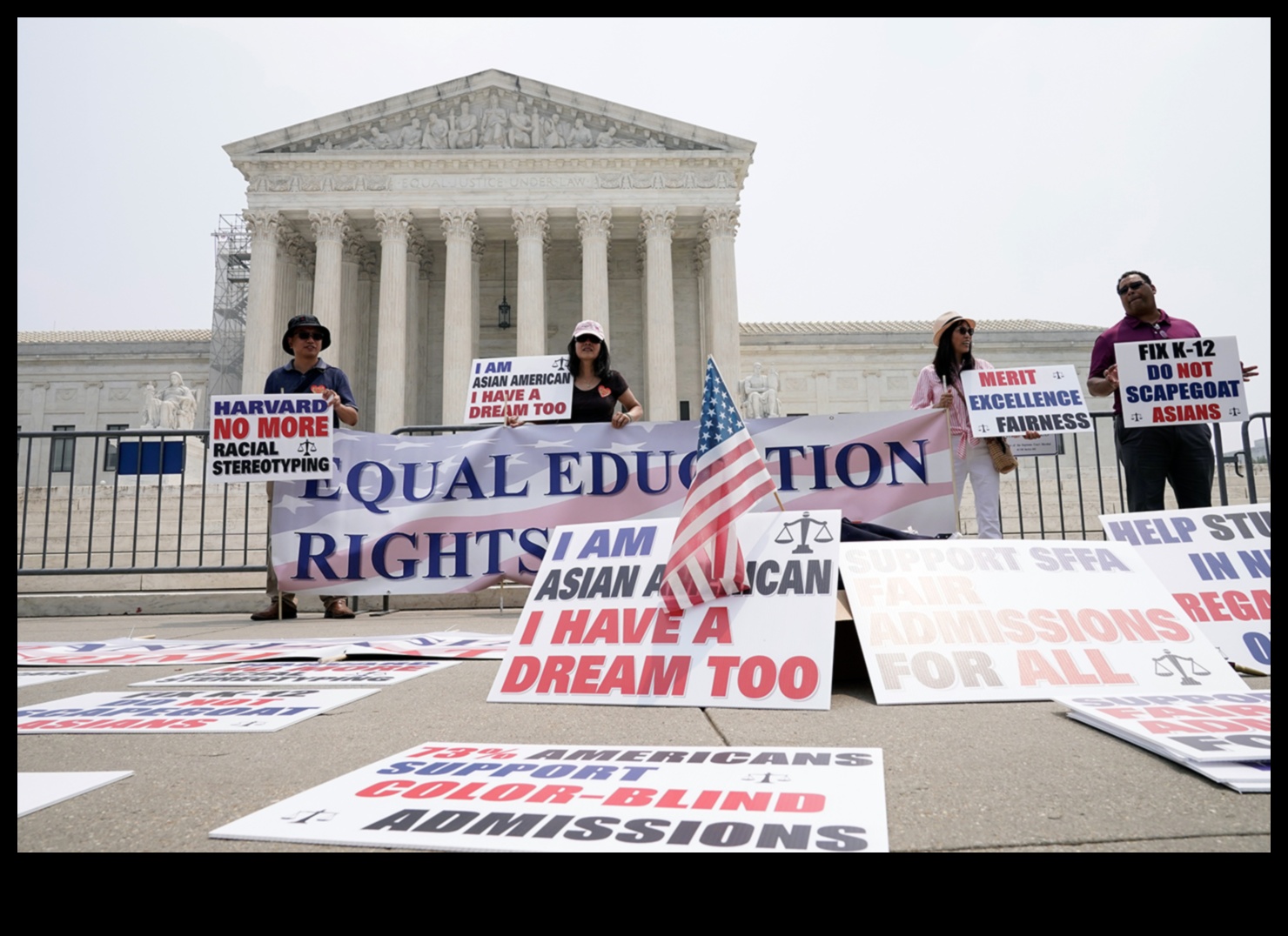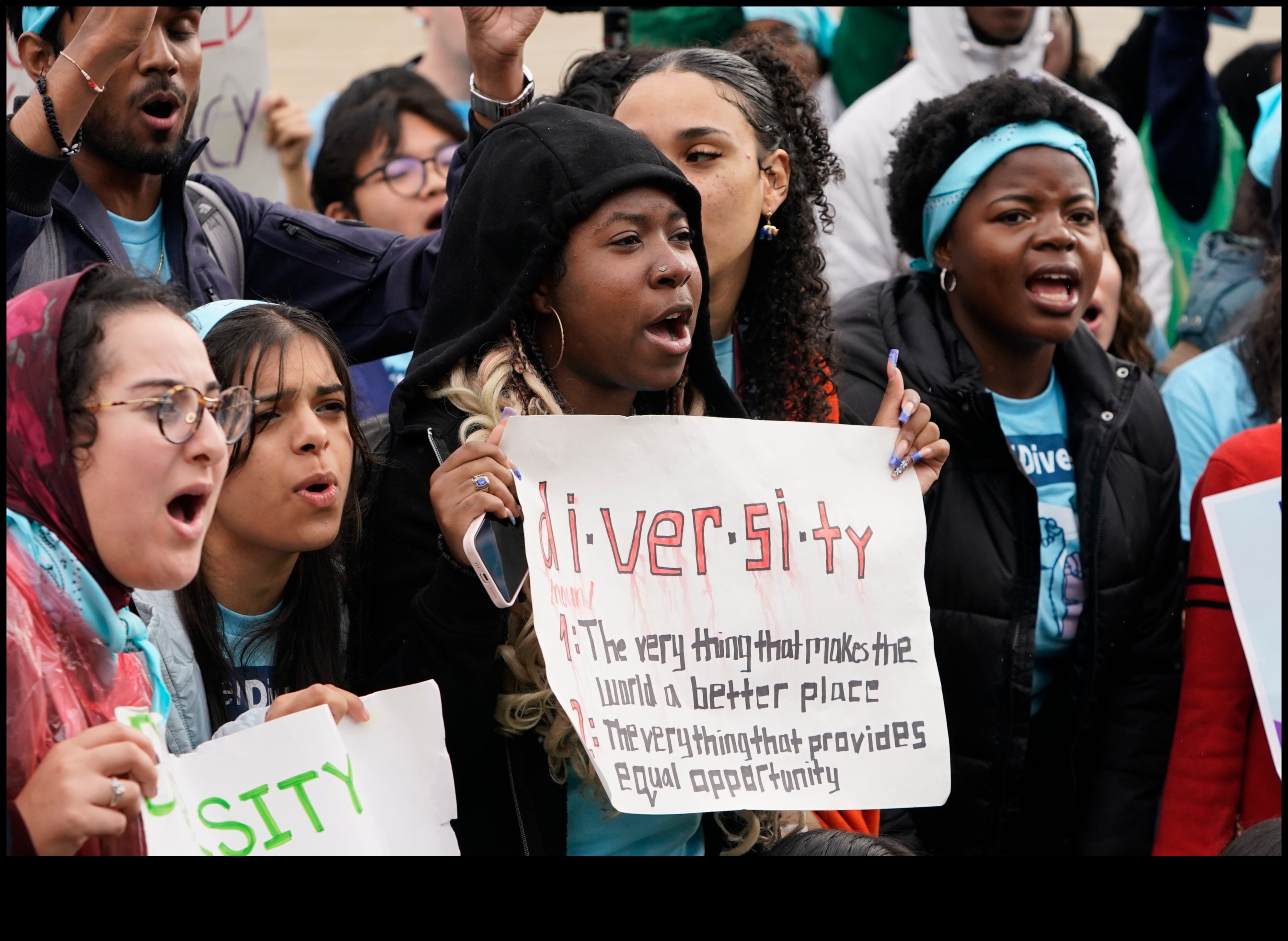
Affirmative Action in College Admissions
Affirmative action is a policy that gives preferential treatment to members of historically disadvantaged groups in college admissions and other areas.
This policy has been in place for decades, and it has been the subject of much debate. Supporters of affirmative action argue that it is necessary to create a more diverse student body and to level the playing field for students from disadvantaged backgrounds. Opponents of affirmative action argue that it is unfair to discriminate against other students based on their race or ethnicity.
In this article, we will discuss the history of affirmative action in college admissions, the arguments for and against affirmative action, the legality of affirmative action, and the effects of affirmative action. We will also provide resources on affirmative action and answer some frequently asked questions about affirmative action.
| Feature | Answer |
|---|---|
| Affirmative action | A policy that gives preferential treatment to members of a disadvantaged group |
| College admissions | The process of applying to and being accepted into a college or university |
| Diversity | The variety of different people, cultures, and ideas that exist in a group |
| Equal opportunity | The principle that everyone should have the same chance to succeed, regardless of their race, gender, or other personal characteristics |
| Race | A social construct that refers to the physical characteristics of a person, such as skin color, hair texture, and facial features |

II. History of Affirmative Action in College Admissions
Affirmative action in college admissions has a long and controversial history. The first affirmative action policies were implemented in the 1960s, in response to the civil rights movement. These policies were designed to increase the representation of historically disadvantaged groups in college admissions, such as African Americans and Latinos.
In the 1970s, the Supreme Court ruled that affirmative action policies were constitutional, as long as they were narrowly tailored to achieve a compelling government interest. However, in the 1990s, the Supreme Court began to take a more skeptical view of affirmative action policies. In a series of cases, the Court ruled that affirmative action policies could not be used to achieve racial quotas or to disadvantage white applicants.
Today, affirmative action policies remain in place at many colleges and universities, but they are under constant legal challenge. The future of affirmative action in college admissions is uncertain, but it is clear that this policy is a complex and controversial issue with no easy answers.
III. Arguments for Affirmative Action in College Admissions
There are a number of arguments in favor of affirmative action in college admissions. These arguments include:
-
Diversity is beneficial to college campuses. A diverse student body exposes students to different perspectives and experiences, which can lead to greater understanding and tolerance.
-
Affirmative action helps to level the playing field for students from disadvantaged backgrounds. Students from these backgrounds often face a number of challenges that make it more difficult for them to compete for college admission, such as poverty, lack of access to quality education, and discrimination. Affirmative action can help to offset these challenges and give these students a fair chance to get into college.
-
Affirmative action helps to promote equal opportunity. All students, regardless of their race or ethnicity, should have the opportunity to attend college. Affirmative action can help to ensure that all students have an equal chance to get into college, regardless of their background.
IV. Arguments against Affirmative Action in College Admissions
There are a number of arguments against affirmative action in college admissions. Some of these arguments include:
- It discriminates against white and Asian students.
- It creates a sense of entitlement among minority students.
- It perpetuates stereotypes about minority students.
- It is not effective in increasing diversity on college campuses.
Each of these arguments has its own merits, and there is no easy answer to the question of whether or not affirmative action is a good policy. However, it is important to consider all of the arguments before making a decision about whether or not to support affirmative action.

V. The Legality of Affirmative Action in College Admissions
The legality of affirmative action in college admissions has been a hotly debated topic for decades. In 1978, the Supreme Court ruled in the case of Regents of the University of California v. Bakke that race could be considered as a factor in college admissions, but only as one of many factors. The Court also ruled that quotas or other forms of rigid racial preferences were unconstitutional.
In the years since Bakke, the Supreme Court has issued a number of other rulings on affirmative action in college admissions. In general, the Court has upheld the use of race as a factor in college admissions, but has also ruled that affirmative action programs must be narrowly tailored to achieve their goals and must not result in the use of quotas or other forms of rigid racial preferences.
The legality of affirmative action in college admissions remains a controversial issue. Critics argue that affirmative action programs are unfair to white applicants and that they create a reverse discrimination. Supporters of affirmative action argue that the programs are necessary to ensure that colleges and universities have a diverse student body.
The future of affirmative action in college admissions is uncertain. The Supreme Court could issue a ruling that significantly changes the law in this area. Alternatively, Congress could pass a law that either overturns or limits the use of race in college admissions. Until the law changes, colleges and universities will continue to grapple with the complex legal and ethical issues raised by affirmative action.

VI. The Effects of Affirmative Action in College Admissions
There is a significant amount of research on the effects of affirmative action in college admissions. The research has found that affirmative action policies have a number of positive effects, including:
- Increased diversity in college campuses
- Improved academic outcomes for students from underrepresented groups
- Reduced discrimination against students from underrepresented groups
However, there is also some research that suggests that affirmative action policies can have negative effects, such as:
- Lower academic standards for students from underrepresented groups
- Increased resentment among students from majority groups
- Increased tension between students from different racial and ethnic groups
Overall, the research on the effects of affirmative action in college admissions is mixed. There is evidence that affirmative action policies can have both positive and negative effects. However, the weight of the evidence suggests that the positive effects of affirmative action outweigh the negative effects.
VII. The Future of Affirmative Action in College Admissions
The future of affirmative action in college admissions is uncertain. There are a number of factors that could affect the future of this policy, including:
* The political climate
* The legal challenges to affirmative action
* The changing demographics of the college-going population
The political climate has been increasingly hostile to affirmative action in recent years. This is due in part to the rise of the conservative movement, which has been critical of affirmative action. Additionally, the Trump administration has been openly hostile to affirmative action, and has taken steps to undermine the policy.
The legal challenges to affirmative action are also a major threat to the future of this policy. In recent years, there have been a number of successful legal challenges to affirmative action policies at both the state and federal level. These challenges have made it more difficult for colleges and universities to use affirmative action in their admissions decisions.
The changing demographics of the college-going population is another factor that could affect the future of affirmative action. In recent years, the number of students from underrepresented minority groups has increased significantly. This has led some to argue that affirmative action is no longer necessary, as these groups are now well-represented in college admissions.
Despite these challenges, there are also a number of factors that could support the future of affirmative action. These include:
* The importance of diversity in higher education
* The benefits of affirmative action for underrepresented minority groups
* The legal precedents that support affirmative action
The future of affirmative action in college admissions is uncertain. However, there are a number of factors that could affect the future of this policy. It is important to consider all of these factors when making decisions about the future of affirmative action.
VIII. Resources on Affirmative Action in College Admissions
The following are some resources that you can use to learn more about affirmative action in college admissions:
- U.S. Department of Education’s Office for Civil Rights: Affirmative Action in College Admissions
- American Civil Liberties Union: Affirmative Action in College Admissions
- National Association for the Advancement of Colored People: Affirmative Action in Higher Education
- The Harvard Crimson: Opinion Columnists on Affirmative Action
- The New York Times: Articles on Affirmative Action
You can also find additional resources by doing a search for “affirmative action in college admissions” on the internet.
IX. FAQs on Affirmative Action in College Admissions
Here are some common questions about affirmative action in college admissions, along with answers to help you understand the policy and how it might affect your chances of getting into college.
Q: What is affirmative action?
A: Affirmative action is a policy that gives preference to historically disadvantaged groups in college admissions and other areas. The goal of affirmative action is to create a more diverse student body and to ensure that all students have an equal opportunity to succeed in college.
Q: Is affirmative action legal?
A: Yes, affirmative action is legal under federal law. However, the Supreme Court has ruled that affirmative action programs must be narrowly tailored to achieve their goals and must not discriminate against other groups.
Q: Does affirmative action help or hurt students from disadvantaged backgrounds?
There is some debate about the effects of affirmative action on students from disadvantaged backgrounds. Some studies have found that affirmative action programs can help students from these backgrounds get into college and succeed academically. However, other studies have found that affirmative action can lead to resentment among students who are not admitted to college because of their race or ethnicity.
Q: Is affirmative action fair?
This is a complex question with no easy answer. Some people believe that affirmative action is unfair because it gives preferential treatment to some students based on their race or ethnicity. Others believe that affirmative action is fair because it helps to level the playing field for students from disadvantaged backgrounds.
Q: What are the arguments for and against affirmative action?
There are a number of arguments for and against affirmative action. Some of the main arguments for affirmative action include:
- It helps to create a more diverse student body.
- It helps to ensure that all students have an equal opportunity to succeed in college.
- It helps to address the legacy of discrimination against certain groups.
Some of the main arguments against affirmative action include:
- It discriminates against students who are not from disadvantaged backgrounds.
- It creates resentment among students who are not admitted to college because of their race or ethnicity.
- It is not effective in helping students from disadvantaged backgrounds succeed in college.
Q: What is the future of affirmative action?
The future of affirmative action is uncertain. The Supreme Court has ruled that affirmative action programs must be narrowly tailored to achieve their goals and must not discriminate against other groups. This has made it more difficult for colleges to implement affirmative action programs. As a result, there is a possibility that affirmative action programs will be eliminated or scaled back in the future.
Q: What can I do to learn more about affirmative action?
There are a number of resources available to learn more about affirmative action. You can find information on the websites of the following organizations:
- The American Civil Liberties Union (ACLU)
- The National Association for the Advancement of Colored People (NAACP)
- The Hispanic National Education Association (HNEA)
You can also find information about affirmative action in college admissions by doing a search online or by talking to your guidance counselor.
X. Conclusion
This article has provided an overview of the affirmative action policy in college admissions. We have discussed the history of affirmative action, the arguments for and against it, the legality of it, and its effects. We have also provided resources for further information on this topic.
We hope that this article has helped you to understand the affirmative action policy in college admissions and how it affects your chances of getting into college.
If you have any further questions, please feel free to contact us.
FAQs on Affirmative Action in College Admissions
-
What is affirmative action?
-
What are the arguments for and against affirmative action?
-
Is affirmative action legal?
Answers to FAQs on Affirmative Action in College Admissions
-
Affirmative action is a policy that gives preferential treatment to members of minority groups in college admissions and other areas.
-
The arguments for affirmative action include the need to increase diversity in college campuses, the need to compensate for past discrimination, and the need to promote equal opportunity.
-
The arguments against affirmative action include the belief that it is unfair to discriminate against people based on their race or ethnicity, the belief that it is ineffective in increasing diversity, and the belief that it creates a reverse discrimination against white people.